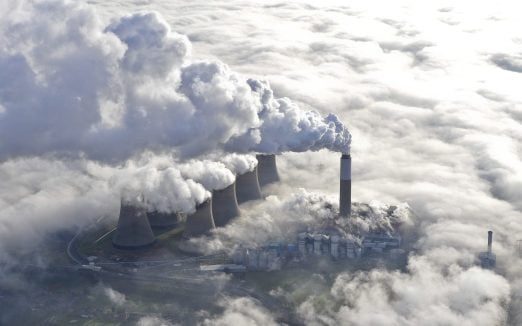The UK has now gone a fortnight without coal, underpinning what has been a landmark month for the country’s energy mix.
The record was confirmed by National Grid ESO at 3:12pm this afternoon, the moment it became clear that the UK would surpass two consecutive weeks without any coal-fired generation whatsoever.
Having only gone a week without coal for the first time since the Industrial Revolution earlier this month, May 2019 has proven to be a halcyon moment for the country’s energy market.
Indeed, National Grid also confirmed that the grid witnessed more coal-free hours in May than in January, February and March combined and, at 624 hours so far, more than in 2017 in total.
Market conditions have also made for a particularly volatile time on the UK’s spot market, with power prices dipping into the negative for a record-breaking nine consecutive hours last weekend, sending balancing costs spiralling to £6.6 million for just one day.
That led one energy firm to describe the events as “extraordinary”, as eleven hours of negative pricing in one 24-hour period sent average wholesale market prices to around -£12/MWh.
This has also had a lasting effect on the last week’s average energy price, which current sits at just £28.04/MWh. In comparison, the average energy price for the same period last year was more than double that at £57.57/MWh.
The record has also meant for an interesting fortnight for the UK electricity system’s carbon intensity. According to figures compiled by Drax Electric Insights, the average carbon intensity of the UK’s power system for the past fortnight has stood at around 179g CO2/kWh, significantly lower than average but still someway behind the country’s 2032 target of 100g CO2/kWh.
Dustin Benton, policy director at think tank Green Alliance, said the record was evidence of coal becoming obsolete.
“By 2025, the UK will not only see coal power plants shut permanently, but also periods without any fossil fuelled electricity at all.
“This is not just a British story. The lesson for coal companies worldwide is that clean energy, efficiency and demand response are both cheaper and better. The lesson for governments is that it’s past time to plan a just transition for workers in the fossil fuel industry: clean energy jobs are the future.”
Jack Dobson-Smith, spokesperson at the Solar Trade Association, echoed Benton’s comments, arguing that coal was becoming just a “bit player” in the UK electricity mix.
“Solar has certainly played a significant part, with this month also seeing the solar generation peak record tumble. We can expect many more coal-free days in the future, and solar’s contribution to these will rise with an anticipated 4-7GW set to be deployed over the next four years, with no need for subsidy. This transition to a clean energy future is essential if we are to tackle the climate emergency, and rising investment in solar will drive green jobs and skills for years to come,” he said.









